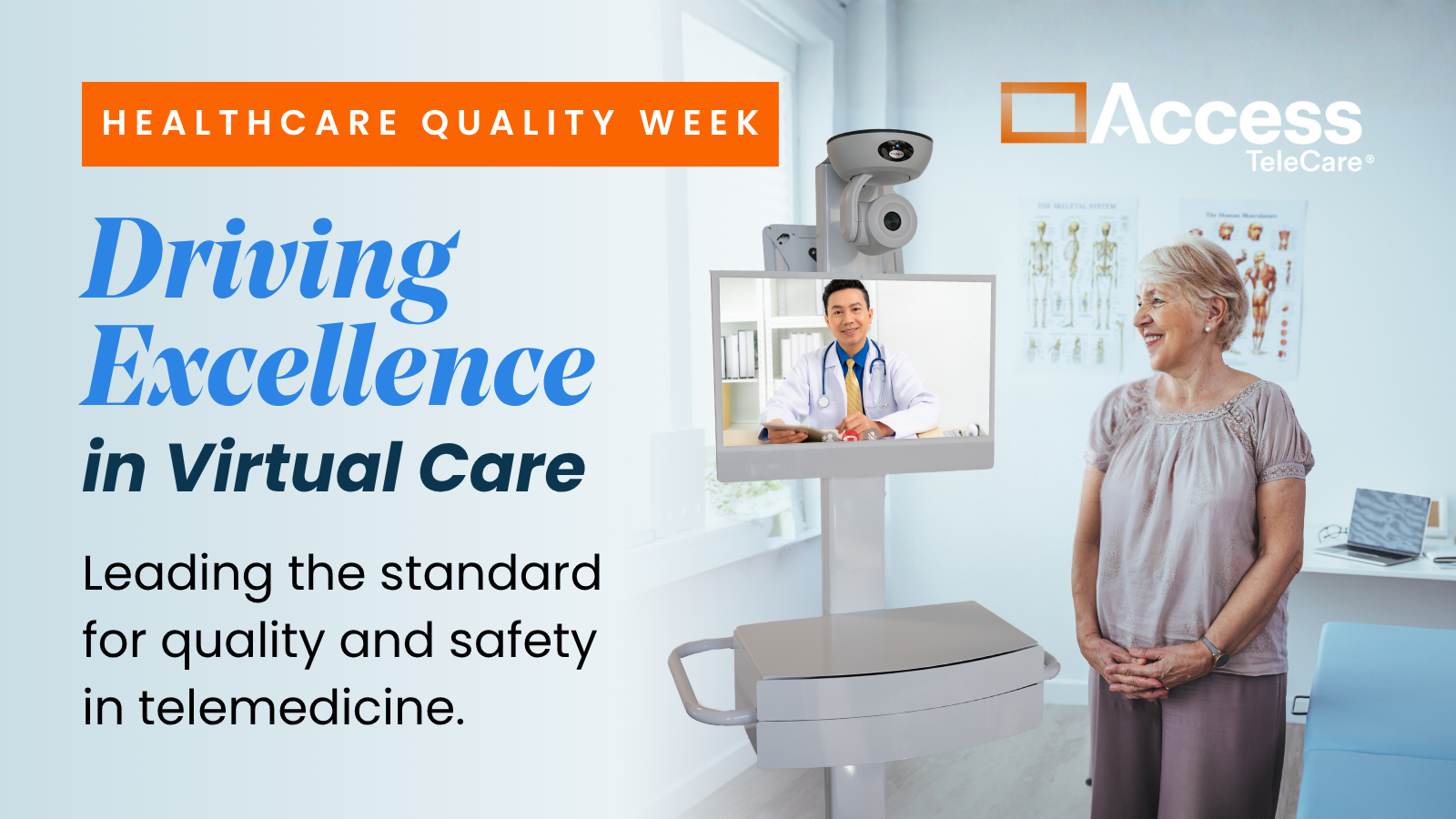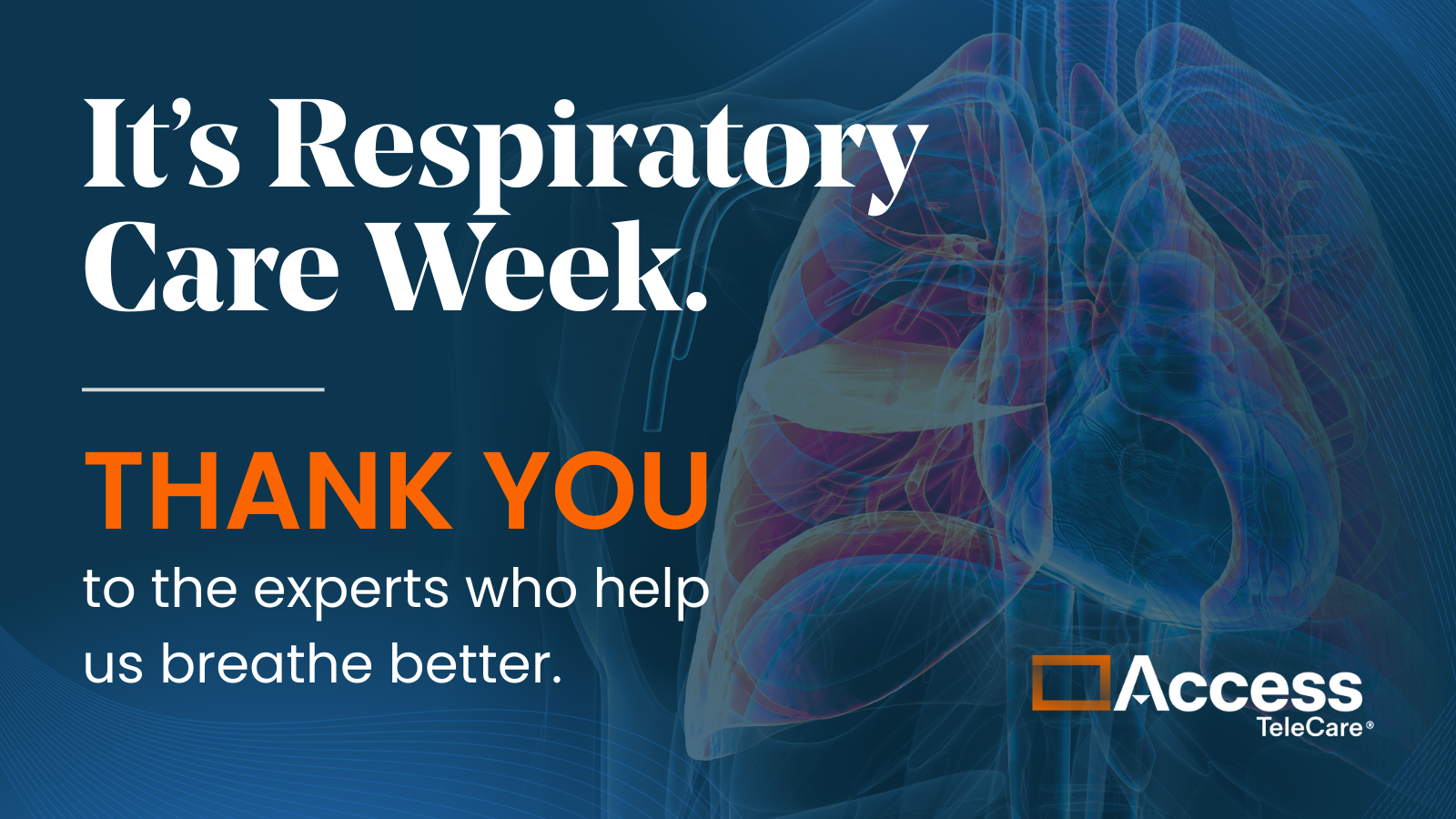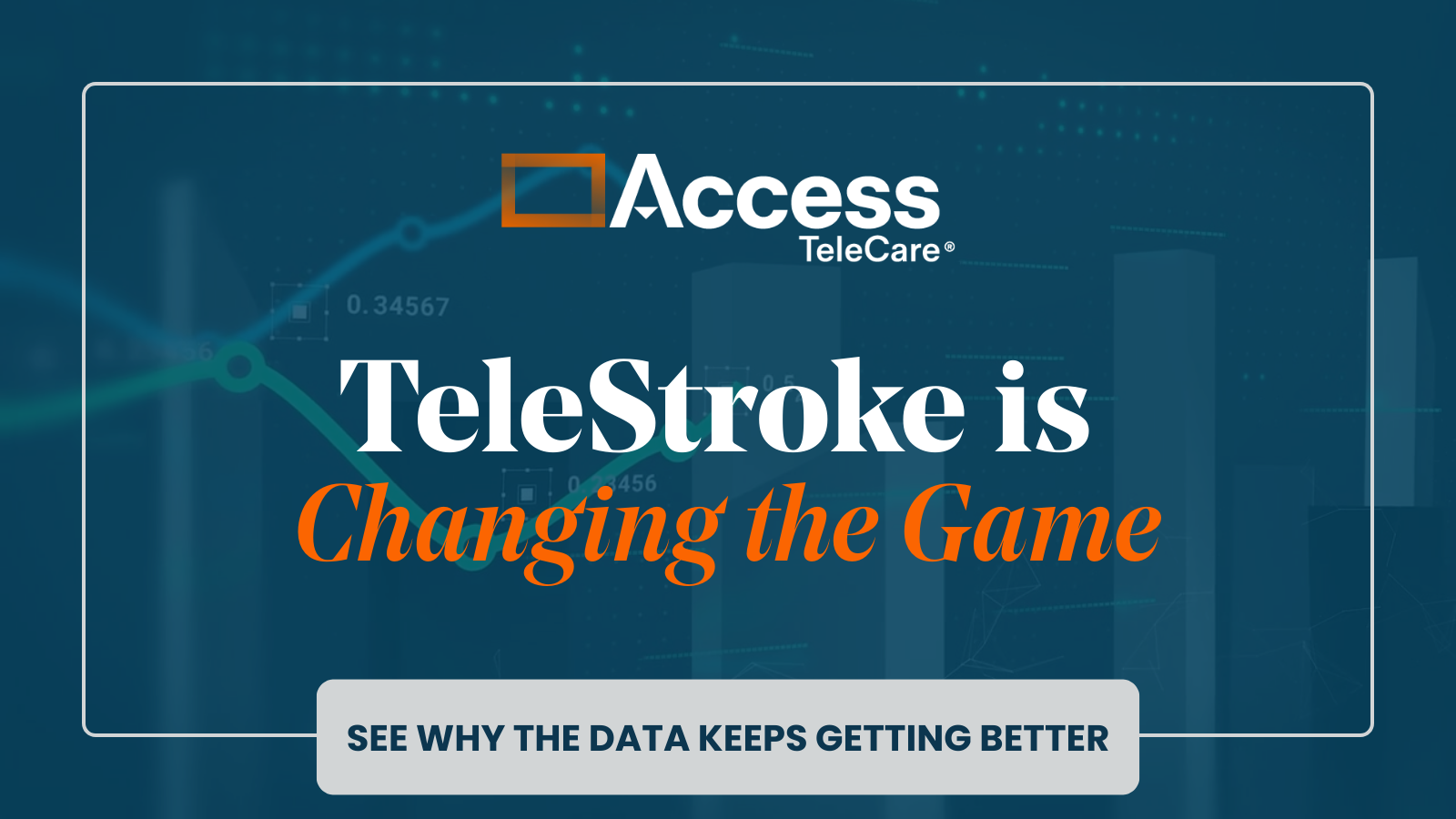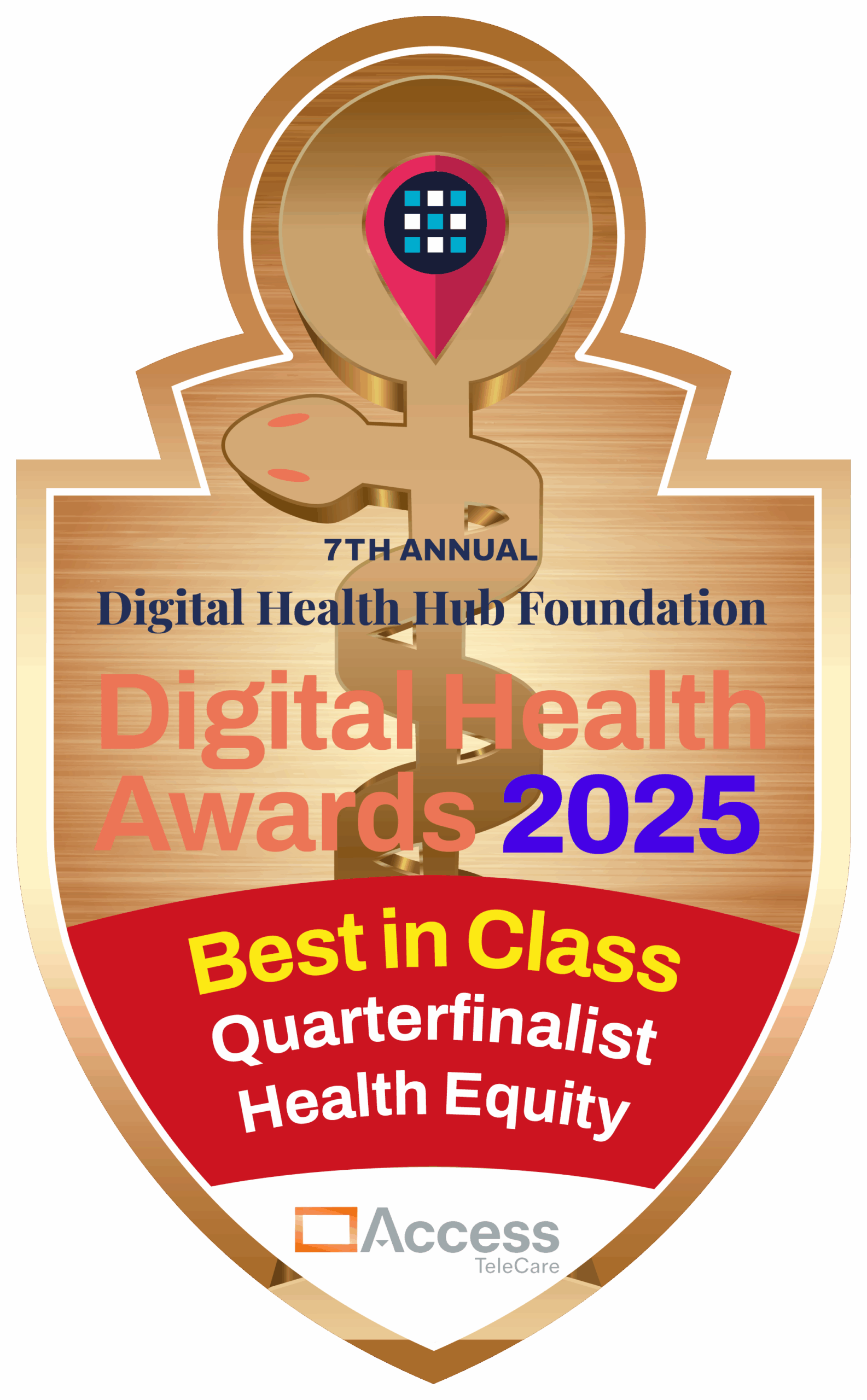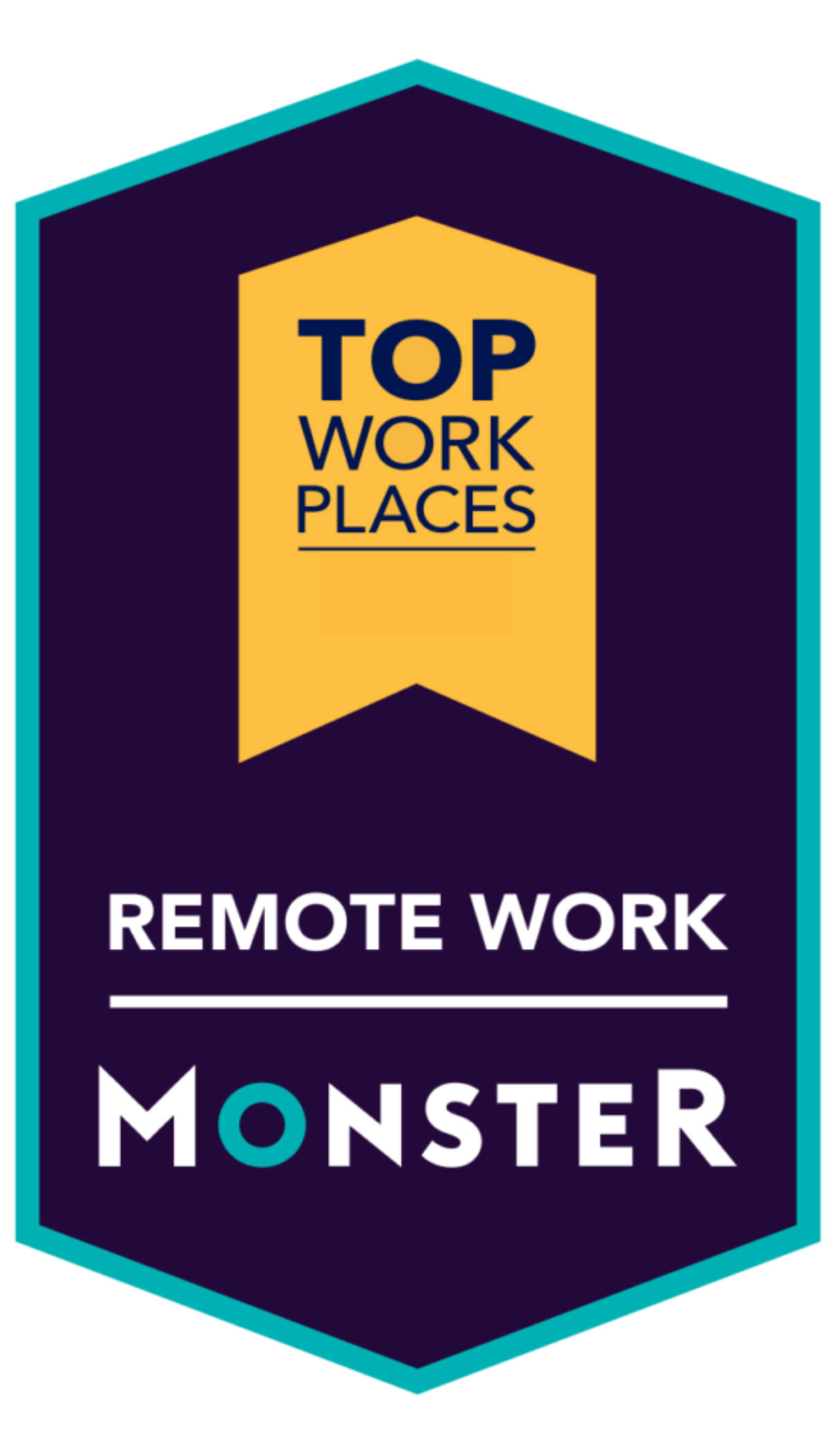As Hurricane Season draws nearer—the formal beginning of the season is recognized as June 1—many hospitals are already overwhelmed with patients due to the COVID-19 pandemic or anticipating a “second surge.” This adds urgency to telemedicine implementations because these facilities may need additional support should an unforeseen natural disaster compound capacity issues onsite.
Fortunately, Access TeleCare is prepared to support complete emergency telemedicine implementations in as little as 18 hours thanks to our RACER (Remote Acute Care Emergency Response) protocol.
What is RACER?
The RACER protocol is an emergency response effort implemented by Access TeleCare to provide acute care services when and where they’re needed most.
With RACER, SOC prepares and arms hospitals and health systems with expedited acute care telemedicine capabilities during the response and immediate recovery phase of disasters. This can be a time with a marked rise in injuries and illnesses from storms and floods, exacerbated chronic conditions, and acute mental health symptoms are more common.
In 2020, U.S. hospitals and health systems are pushed further by the community needs around the COVID-19 pandemic. RACER provides rapid access to remote physicians that health systems may desperately need, should disaster-impacted emergency departments and ICUs reach capacity or providers are unable to reach facilities.
At its essence, RACER is emergency telemedicine, deployed rapidly.
Where has RACER been deployed in the past?
The only certainty of natural disasters is the uncertainty of where, when and to what extent damage will spread in impacted areas, both in the short and long term.
When Hurricane Florence made landfall in South Carolina in mid-September 2018, it left more than 150,000 residents without power and caused lingering disruptions in essential services, including medical care.
One particular hospital, Onslow Memorial Hospital, was hit hard by Hurricane Florence’s destructive force. Flooding was so severe that hospitalists were unable to get to the hospital, while the number of patients more than doubled the day immediately after impact.
SOC used its RACER protocol to provide Onslow Memorial with expedited remote acute care from Sound Physicians during the response and immediate recovery phase.
RACER was also deployed in advance of Hurricane Michael in Jacksonville, Florida.
How long does RACER take to enact?
In short, it depends on the situation on the ground. Does the hospital have access to its telemedicine hardware? Is the broadband connection intact?
Hospitals cannot close during the most trying times and are usually prepared to come back online quickly with redundant systems. As such, Access TeleCare stands at the ready to provide immediate support in the hours and days after a hurricane; what we require is a functional telemedicine-enabled cart (or several) onsite, with access to a working broadband connection.
For Onslow Memorial Hospital, SOC’s RACER protocol began actively supporting the hospital within 18 hours of the storm. In cases where a hospital lacks the Telemed IQ platform and hardware to engage with RACER-ready doctors before the natural disaster, an implementation can take longer. In every RACER protocol case, SOC and partners will collaborate and work together around the clock to get the monumental task of rapid implementation done as quickly as possible. In the best of cases, that time window can mean less than 24 hours, in contrast to standard implementations that take 90 to 120 days.
What was the outcome for RACER after Florence??
In short, our emergency response provided remote acute care at Onslow for critical three days during the immediate response and recovery from Hurricane Florence. Three physicians, provided by Sound Physicians, provided care on the Telemed IQ platform, each covering a 12-hour night shift. The implementation translated to critical care for 16 patients, including a newborn, during those three days.
Our goal is to provide the same level of preparedness for partners as we enter another hurricane season, perhaps less prepared than ever before to take on a natural disaster.
************
To prepare for hurricane season by ensuring your hospital or health system is ready for RACER support, contact us today.


